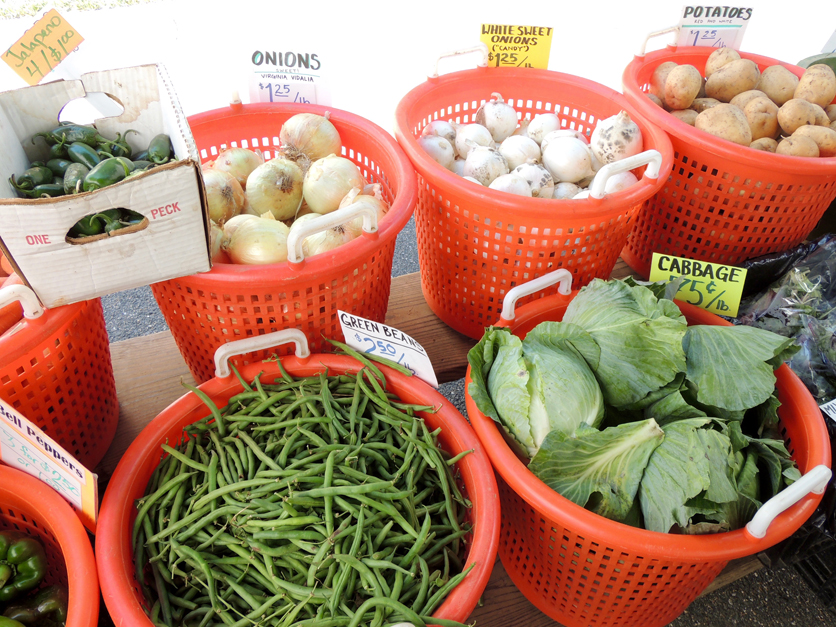Reps. Roger Marshall and Jim McGovern could not be more different on paper. Marshall, a Republican, represents Kansas’ heavily agricultural 1st District, which President Trump carried with 69 percent of the vote in 2016. McGovern is a liberal firebrand from Worcester, Mass., west of Boston.
But the two lawmakers, both of whom are members of the House Agriculture Committee, have found an issue that they can agree upon: “Food as medicine,” the concept, as old as Hippocrates, that better diets can prevent and treat disease. (“Let food be thy medicine and medicine be thy food,” Hippocrates said.)
Just in time for Congress to consider a new farm bill, Marshall and McGovern, together with Chellie Pingree, D-Maine, and Lynn Jenkins, R-Kan., have formed a bipartisan Food as Medicine Working Group to promote healthful-eating incentives in federal nutrition policy.
Marshall and McGovern are members of the House Agriculture Committee, while Pingree sits on the House Agriculture Appropriations Subcommittee, which writes the USDA and FDA annual budgets.
“We simply cannot address hunger and health as two separate issues,” McGovern said. “They’re two sides of the same coin.”

Jim McGovern, D-Mass.
Marshall, who is one of only two obstetricians in Congress, is unusually positioned on the Agriculture Committee to make the case that nutrition, including adequate amounts of iron and vitamins D and B6, is critical to maternal and fetal health. “If you come into your pregnancy and you’re already anemic, you’ll never catch up. I can’t give you enough iron to catch you up,” Marshall said at a recent briefing for congressional staff.
Marshall’s pitch wasn’t just for fruits and vegetables either. Two foods that meet the "food as medicine" definition, according to Marshall, are whole milk, for vitamin D, and “lean Kansas beef,” for iron.
Marshall said he and McGovern agree that "we don't want any kids going to bed hungry at night. We want to make sure the elderly have access to nutrition, that truly food is health."
The formation of their working group comes as the House Agriculture Committee is preparing to debate a new farm bill in February or March. The committee is expected to consider tightening eligibility rules in the Supplemental Nutrition Assistance Program, formerly known as food stamps, at the same time there is pressure to consider incentives or restrictions to promote consumption of more health foods, including fruits and vegetables.
There appears to be little political appetite in Congress or the Trump administration for restricting food choices for SNAP recipients. Agriculture Secretary Sonny Perdue has rejected state proposals to prevent benefits from going for sugary beverages.
But there will be efforts in Congress to continue and expand a program created by the 2014 farm bill to fund local projects that encourage SNAP recipients to buy fruits and vegetables. The Food Insecurity Nutrition Incentive (FINI) program provides grants to local projects that have tested a variety of incentives for encouraging SNAP beneficiaries to buy fruits and vegetables. The incentives that have been tested so far include giving SNAP recipients supermarket coupons for fruits and vegetables. Other projects provide vouchers or tokens at farmers markets when SNAP recipients swipe their EBT cards.
In other cases, community health providers have used the incentive grants to provide paper vouchers, or “prescriptions,” to patients to buy fruits and vegetables.
The FINI program, which is funded at $25 million for fiscal 2018, is one of 37 farm bill program that will expire this year unless Congress renews them and provides additional money.
The dairy industry, meanwhile, is urging Congress to expand the FINI program to include milk. The International Dairy Foods Association has worked with major supermarket chains to develop support for funding FINI incentives to SNAP customers to buy milk in stores.
“If we can get children drinking milk at an early age they may become milk drinkers later,” said IDFA President and CEO Michael Dykes, speaking at the group’s annual meeting this week in Palm Desert, Calif. Nearly half of SNAP households have children, he said.
The four lawmakers in the Food as Medicine Working Group have a growing body of research behind their message, and the science goes beyond the well-established link between diet and many diseases. New studies suggest that providing incentives to people to improve their diets can improve their health.

Roger Marshall, R-Kan.
For example, low-income adults who receive SNAP benefits incur $1,400 less in medical bills than other poor people who aren’t on the program, a savings of about 25 percent, according to a paper released by the Center on Budget and Policy Priorities, a research and advocacy group.
SNAP beneficiaries also are more likely to report excellent or very good health than low-income Americans who aren’t enrolled in the program, the group said.
Dariush Mozaffarian, dean of Tufts University’s Friedman School of Nutrition Science and Policy, said new research sponsored by the National Institutes of Health but not yet published found that providing incentives for fruit and vegetable consumption through Medicare and Medicaid could pay for itself in lower health care costs.
Another Tufts study projected that adjusting prices for seven specific foods, including fruits, vegetables and sugar-sweetened beverages, could prevent an estimated 23,000 deaths a year. A 30-percent change in prices would save 63,000 deaths, according to the study.
Mozaffarian said improving diets is critical to controlling the cost of treating diabetes, heart disease and other illnesses. “One in four dollars in the federal budget is spent on health care. … That’s only going to go up until we address food,” he said.
For more news go to: www.Agri-Pulse.com


